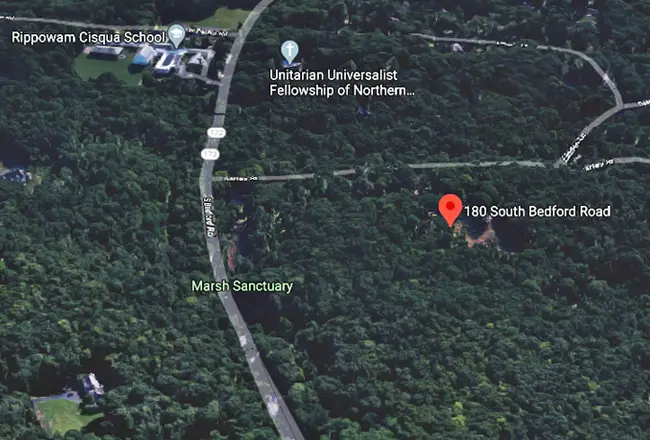Marsh Sanctuary, a 156-acre nature conservatory in Mount Kisco, is asking a court to strike a zoning law that it contends was pushed by village officials with a financial interest in building a solar farm on pristine land next to its property.
“A municipality may not use its police power to spot zone a particular parcel of land for special treatment,” according to the complaint filed last month in Westchester Supreme Court, “and which serves to benefit only the owner and lessee of the spot zoned parcel.”
The lawsuit also names Sunrise Community Solar LLC, owned by Doug Hertz, chairman of the village planning board, and Skull Island Partners, a Florida company that owns the 25-acre property at 180 S. Bedford Road.
“It is unfortunate that the few who disagree with thoughtfully and lawfully enacted legislation elect to bring false claims in a lawsuit,” Edward Brancati, the village manager, stated in an email. “The village will have to use taxpayer dollars to defend the solar legislation and to correct all the misrepresentations outlined in this ill-conceived lawsuit.”
In 2018, the village amended zoning laws to allow solar panel arrays to be installed in certain places, subject to a special use permit.

The original draft did not permit large, ground-mounted arrays greater than 10,000 square feet in conservation districts, according to the complaint. Then the planning board received a last-minute request by “some unknown person” to allow large solar arrays in the conservation district around Marsh Sanctuary.
The revision was allegedly crafted specifically to include 180 S. Bedford Road and exclude every other lot within any conservation district.
In 2013, Realis Development Inc., a Pleasantville company connected to John R. Bainlardi, a lawyer who is vice chairman of the village”™s planning board, sold the land to Skull Island Partners of Tierra Verde, Florida, for $1.5 million.
Skull Island is controlled by David Seldin, according to Florida corporation records. He is a managing partner of Anzu Partners, a national investment firm, and locally he is a director of Nice-Pak Products in Orangeburg.
This past January, Seldin and Hertz applied for a special use permit to build a 7-acre, 2.5 megawatt hours (2,500 kilowatts) solar farm on the Bedford Road property.
The project would destroy nearly 700 trees, according to the complaint, damage a wildlife habitat, conflict with the village”™s comprehensive plan and harm Mount Kisco”™s image as a desirable wooded enclave.
Marsh Sanctuary claims that the village gave special treatment to a yet undisclosed person, possibly Hertz or Bainlardi.
Hertz and Bainlardi are not personally named as defendants in the lawsuit.
Hertz recused himself from the planning board”™s role on the special permit application. But the recusal is illusory, Marsh alleges, claiming that Hertz is still participating in public hearings and influencing the political process.
“The chairman”™s misconduct clearly violates the spirit and intent of the ethics laws,” according to the complaint.
Marsh Sanctuary accuses the village and the companies of illegal spot zoning, conflict of interest, and failure to give proper notice of a zoning change.
Hertz declined to comment, stating that he has not been served with the lawsuit, and though he is aware of it, he has not yet reviewed it.
Brancati said the solar law is based on a model law written by the state Energy Research & Development Authority, and it permits solar installations in 15 of the village”™s 25 zoning districts.
“The village believes that it is disingenuous to assert that this is impermissible spot zoning,” he said, “when the village has not rezoned a single parcel of land.”
The sanctuary was joined in the complaint by Mount Kisco Chase Homeowners Association, representing 86 homes, and by six individual homeowners, who live in a conservation district near the proposed solar farm.
They are asking the court to nullify the solar law as it applies to 180 S. Bedford Road and stop the village from granting a special use permit to build the solar farm.
They are represented by Manhattan attorneys Daniel Katz, Gerard Romski and Robert J. Howard.





















2.5 millon kilowatts on a 7 acre farm? Math seems wrong.
Thanks. It was 2.5 megawatt hours. The story has been corrected.